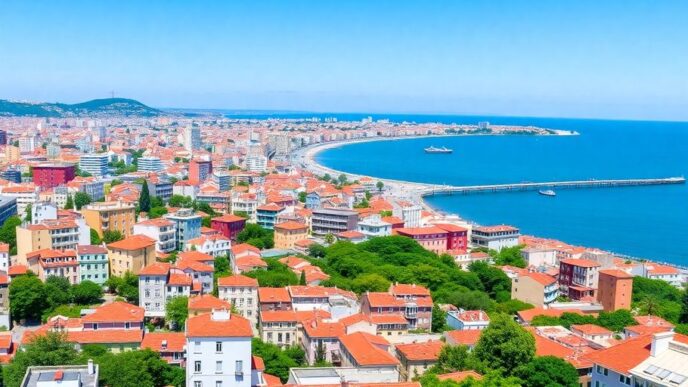Lisbon has officially become a global hub for Internet of Things (IoT) satellites, following the recent launch of several nanosatellites by SpaceX. This development marks a significant milestone for Portugal’s space industry, particularly with the establishment of FOSSA Systems’ new global hub in the city.
Key Takeaways
- Lisbon is now the global center for IoT satellites, with a focus on nanosatellites.
- FOSSA Systems has opened a new hub in Lisbon, enhancing satellite connectivity.
- The Portuguese satellite constellation PoSAT-2 is part of a larger initiative to monitor maritime traffic.
The Launch Event
On March 14, 2023, FOSSA Systems inaugurated its global hub for IoT devices in Lisbon, coinciding with the launch of three new FOSSASat nanosatellites by SpaceX’s Falcon 9 rockets. This event also included the launch of two Portuguese satellites: PoSAT-2, developed by LusoSpace, and PROMETHEUS-1, created by the University of Minho.
The PoSAT-2 Satellite
The PoSAT-2 satellite is the first in a planned constellation of 12 microsatellites, with a total budget of approximately €20 million. These satellites will be positioned in low Earth orbit, around 500 kilometers above the International Space Station, to monitor maritime traffic effectively. The project is partially funded by the EU Recovery and Resilience Plan, with the remaining 11 satellites expected to launch by the end of 2025.
The PROMETHEUS-1 Satellite
PROMETHEUS-1 is a compact satellite measuring just five centimeters on each side and weighing 250 grams. It is equipped with guidance systems, a battery, and a camera similar to those found in mobile phones. This technology will enable it to capture images and assess the performance of software and hardware in space.
FOSSA Systems’ Vision
FOSSA Systems, a Spanish satellite company, has chosen Lisbon as its global hub for developing IoT devices for satellite connectivity. The CEO, Julián Fernández, emphasized that FOSSA is the only European company that integrates the entire process of designing, developing, manufacturing, and operating IoT satellites. This strategic move positions Portugal at the core of FOSSA’s global research and development efforts.
Future Prospects
FOSSA Systems aims to establish a constellation of 80 satellites in the coming years, providing real-time connectivity across the globe. The company has experienced remarkable growth, with a 500% increase in revenue in 2024, and it plans to sustain this upward trend in 2025. The opening of this new branch in Lisbon marks the beginning of FOSSA’s commercial phase, highlighting the city’s growing importance in the global space industry.
Lisbon’s emergence as a global hub for IoT satellites not only enhances its technological landscape but also positions Portugal as a key player in the future of satellite connectivity and space innovation.














